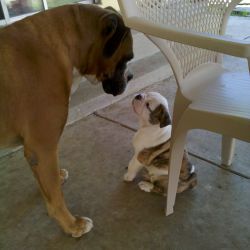Origins and Temperament
The Miniature Schnauzer, a breed with German origins, is renowned for its distinctive appearance and dynamic personality. Originally bred to be ratters and guard dogs, they are alert, spirited, and exhibit a friendly disposition. With their inherent intelligence and eagerness to please, Miniature Schnauzers adapt well to training—qualities that are important when preparing for travel. Their alert nature means that they might be more sensitive to new environments and travel sounds, which should be considered for their comfort during transit.
Size and Physical Needs
Standing 12 to 14 inches tall and weighing 11 to 20 pounds, Miniature Schnauzers are small but sturdy. Their compact size makes them suitable for various travel situations, though their energetic spirit requires regular exercise. Since they have a thick, wiry coat and can be prone to overheating, ensuring their travel space is well-ventilated and cool is essential. Ample space to move around during travel can help in keeping them comfortable and relaxed.
Common Health Considerations
Miniature Schnauzers are generally healthy but can be susceptible to certain health conditions like pancreatitis, bladder stones, and skin issues. Ensuring they are up to date with all required vaccinations and carrying relevant health documents is crucial for travel. Before embarking on a trip with CitizenShipper, consider a veterinary check-up to address any potential travel concerns and ensure a safe journey for your canine companion.















